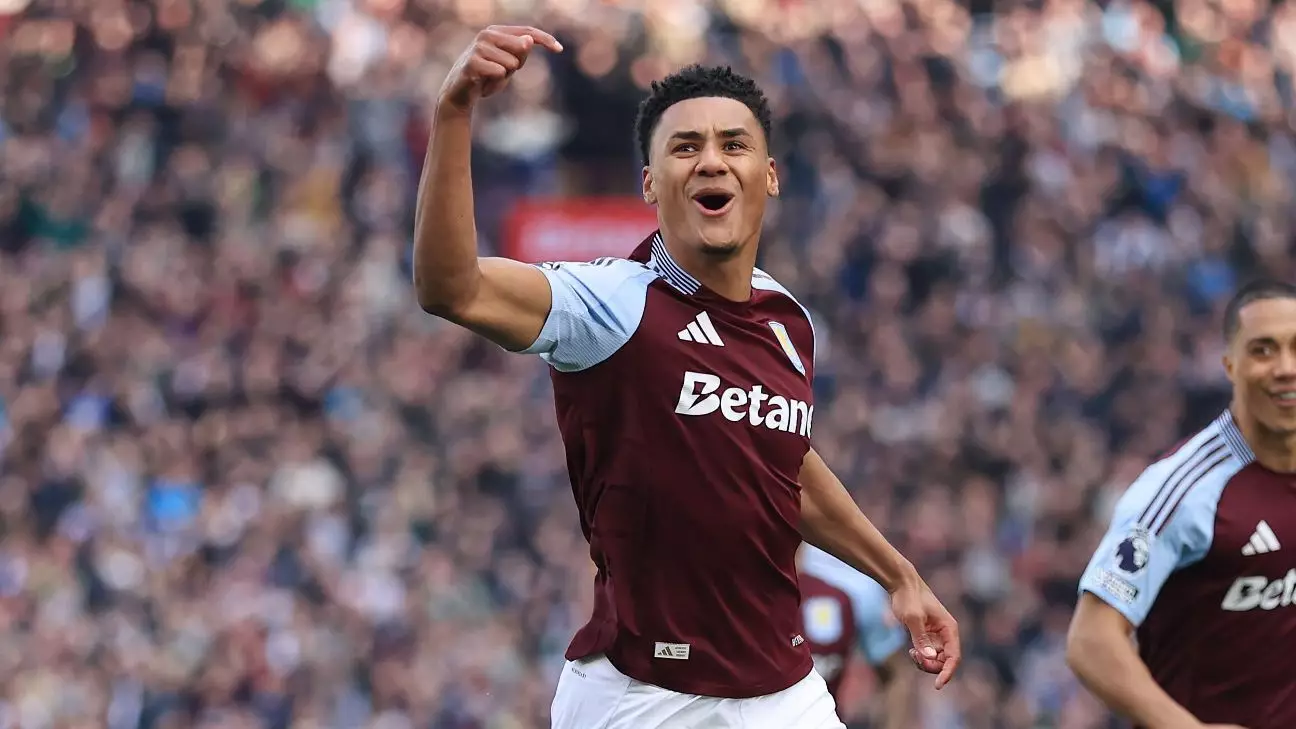The football transfer market is a whirlwind of excitement, speculation, and sometimes baffling decisions. As teams assess their rosters and strategize for the future, the upcoming summer transfer window promises to be both pivotal and intriguing. Premier League giants Manchester United are at the center of several potential high-stake moves, including a fascinating swap deal between Ollie Watkins and Marcus Rashford. The effectiveness and implications of such trades can be far-reaching, not only for the teams involved but for the entire league landscape.
Manchester United’s Ambitious Swap Tactics
Reports have surfaced indicating that Manchester United may propose an audacious swap involving their homegrown star, Marcus Rashford, in exchange for Aston Villa’s Ollie Watkins. This generational shift within the squad reflects United’s eagerness to bolster their attacking options, particularly considering the challenges they’ve faced in that area recently. The potential for Rashford to transition to Villa while welcoming Watkins to Old Trafford raises heated discussions among fans and analysts alike.
Rashford has previously been valued around £40 million, which could provide a tangible asset in the pursuit of a proven striker like Watkins. The latter has developed into a formidable talent in the elite league, but his own frustrations at Villa—stemming from limited playing time—add another layer to this ongoing saga. However, swap deals in football are notoriously tricky, often mired in negotiations and market conditions that can change at a moment’s notice.
Competition Heating Up for Eberechi Eze
As if the Watkins-Rashford situation wasn’t enough to stoke the fires of a competitive summer, Manchester United’s reported interest in Crystal Palace midfielder Eberechi Eze introduces complications. Eze, whose contract runs until 2026, is expected to command upwards of £50 million, presenting a substantial investment for any club daring enough to make an offer. While both United and Aston Villa appear to have a keen eye on this promising playmaker, the stakes are exceptionally high given his potential to change the attacking dynamics for whichever team secures his services.
The narrative here is clear: United’s manager Ruben Amorim sees the strengthening of his midfield as integral to his tactical philosophy moving forward. The urgency to update and optimize the squad suggests an environment where creativity and adaptability will be more crucial than ever. Aston Villa, already formulating alternatives should Rashford depart, are equally keen on Eze, making this a classic example of transfer season competition.
The Goalkeeping Crisis: Manchester City’s Dilemma
The transfer market buzz isn’t confined to Manchester United, however. Across town, Manchester City faces its own trials with their number one, Ederson, facing injury woes and garnering attention from Saudi Arabian clubs. Reports indicate that City tops their wishlist with Diogo Costa from FC Porto as a potential replacement for Ederson. With a hefty release clause of £63 million, City’s belief that they might secure him for around £50 million illustrates the calculations teams must navigate.
As goalkeeper dynamics shift, it opens discussions about both the talent’s future and the financial implications involved during such high-stakes transactions. Can City afford to gamble on unproven talent amidst their title pursuits? Ensuring that they have a capable backup—especially one as young and promising as Costa—could prove vital for sustaining their hold at the top.
Expanding Horizons: Liverpool’s Fresh Frontline Strategies
While other clubs scramble, Liverpool is also engaging in proactive acquisition strategies despite securing Mohamed Salah on a new contract. The Reds are reportedly eyeing Brentford’s Bryan Mbeumo as a potential reinforcement for their attacking line. This move illustrates a calculated decision not just to increase depth but to maneuver strategically around the ever-fluctuating nature of player commitments. Liverpool’s willingness to consider fresh talent reveals a vision for a future-focused squad that seeks to retain its competitive edge.
Brentford’s valuation of Mbeumo at around £50 million raises questions regarding Liverpool’s approach to their overall transfer policy. As clubs attempt to fill voids while enhancing their key players, understanding financial limits and market fluctuations becomes paramount, making it imperative for Liverpool to act decisively.
Future Stars on the Radar
The underlying themes of this summer’s transfer window point to a renewed focus on youth and long-term planning. Clubs like Borussia Dortmund are showing interest in young talent as they seek out prospects to bolster their squads for the future. The emphasis on developing a blended mix of youth alongside established stars reflects the tactical adaptability that teams must embrace to survive the pressures of modern football.
As the market heats up, the emphasis on financially sound and strategic decisions becomes the game plan for clubs seeking to redefine their fortunes. Whether through potential blockbuster deal-making or vying for under-the-radar talents, the excitement surrounding transfers continues to hold the spotlight, inviting fans and pundits alike to ponder: what could be the next big move?

